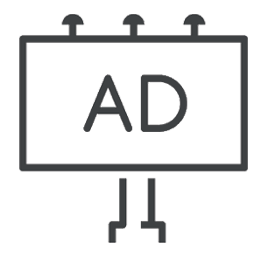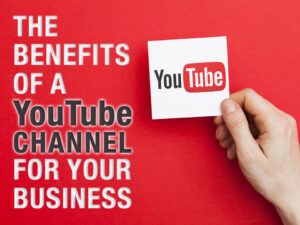If you’ve been around as a business owner or someone that needs the website for whatever reason, there is no way you have not come across the term SEO. You might even have been caught between the large amount of information that is scattered all around the Internet, and you might even be confused as to what it is and whether it is the answer to your problems so the real question we’re going to address in this blog is what is SCO and why you must have it if you want to see your website on the first or second page of google search results.
So let’s get started!
What is SEO?
Have you ever wondered how is it that a business shows up on Google when you search for a certain search term? Well that is a magic that is achieved through search engine optimization a.k.a. SEO!
So to answer the big question “What is SEO?”, you first need to know that it is a contraction for “Search Engine Optimization”. SEO is a term used to refer to a set of activities that will help the search engines such as Google and Bing to recognize your website as credible compared to those of your rivals and place you higher on the search engine results page – also known as SERP!
How is SEO different from SEM and PPC?
We have a whole other article on the matter where we have dived deep into what PPC marketing is and how it is different from SEO, SEM and the rest of the confusing terminology that you might come across in your research. So make sure to check that one out by clicking here!
SEO vs. PPC

Digital marketing employs a number of strategies to increase the flow of visitors to a given website from search engines but two of its main methods are Search Engine Optimization (SEO) and Pay-Per-Click (PPC) advertising. Both their strategies aim at boosting a site’s visibility although they work differently with respective advantages and disadvantages.
SEO concentrates on improving non-paid or organic search engine rankings for websites. It involves a series of optimization techniques that make a website more appealing to search engines such as Google. Content optimization, meta tags and internal linking are part of on-page SEO while building backlinks and engaging in social media are some off-page methods used for this purpose. Also referred to as ‘tech SEO,’ technical requirements like fast loading times, mobile responsiveness and secure connections are among those which must be met during technical optimization.
One major pro about SEO is that it is cheaper in the long run since clicks or traffic does not have to be paid for directly. site can continue sustaining high levels of traffic over time once it has reached the top positions through regular maintenance.However, Search Engine Optimization demands much patience before real impact is felt because sometimes even up to several months might be needed before significant results become apparent,notwithstanding this outcomes are also not stable as they may fluctuate due to changes made by search engine algorithms.
PPC advertising on the other hand constitutes paying for advertisement spaces through bids on keywords that trigger them when they appear in search result pages (SERPs). Google Ads is one common platform where businesses can run their PPC campaigns targetting specific phrases related to what people would type while looking for products or services online.These words are bid upon by advertisers who wish to see their ads displayed higher than those competing against the same terms.
Cost per click (CPC) model charges an advertiser every time somebody clicks on his/her ad which means more money being spent but also higher chancesof getting noticed Instant visibility brings forth immediate effects where traffic starts flowing into site as soon as campaign is launched therefore making this type of marketing very useful especially for time-bound promotions.However,its effectiveness may be limited if not well managed since all traffic stops once budget gets used up ,thus requiring constant financial injections in order to keep things moving forward.
The major distinctions between SEO and PPC are cost structure, time to results, sustainability, and control. SEO does not involve any direct payments for clicks or impressions, although it requires an upfront investment of time and energy. This makes it cheaper in the long run than PPC, which demands ongoing financial input as advertisers pay whenever their ads get clicked on.
SEO is a slow burner – its effects build up gradually over months or even years – while with PPC you see immediate results but only so long as you keep pouring money into it to maintain traffic levels. When it comes to lasting power: well-optimized sites can hold onto top positions almost indefinitely by regularly updating content etc., but when your ad budget runs dry then that’s also the end of any more visitors from paid search.
People trust organic search results more than paid-for ones, and this is reflected in the higher click-through rates they attract. This means that while PPC ads may be more prominently placed, some users will always view them with suspicion. Lastly, SEO helps push your website up towards the front page within natural SERPS (search engine results pages), whereas all PPC adverts are confined either slightly above or below it – typically marked out by being labeled “ad” or “sponsored”.
SEO vs. SEM

SEM (Search Engine Marketing) and SEO (Search Engine Optimization) are an integral part of digital marketing. They each have unique roles and methods but are both aimed at increasing visibility of a website as well as driving traffic to it. Despite wanting to attract more visitors from search engines, they utilize different strategies and serve different purposes altogether.
Unlike SEM (Search Engine Marketing), which involves a variety of methods to improve a website’s visibility mostly through paid advertising, SEO (Search Engine Optimization) is more about making a website better for search engines.
Pay-per-click advertising (PPC) is the most popular form of SEM; advertisers pay a fee each time one of their ads is clicked. For this purpose, platforms like Google Ads and Bing Ads are often used. Ad auctions are a big part of what goes into creating successful search engine marketing campaigns – companies bid on keywords related to their business in order for these terms to trigger an ad being displayed when someone types them into Google or another search engine that has partnered with the company holding auction rights.
The position where an ad appears among paid listings can be influenced by many things including bid amounts as well quality scores assigned by hosting services such as AdWords itself which take account various factors like relevance or expected click-through rate among others. SEM also provides detailed targeting options so that advertisers can reach particular groups based on such criteria as location, device used, time of day etc.
Therefore, one advantage offered by this type over others is its immediacy; once activated ads start bringing in visitors right away. Besides, it boasts high precision thanks to real-time feedback at every step along the customer journey but it should be noted that the cost may quickly add up for a competitive industry with heavy reliance on these tactics coupled with short duration limits while capitalizing on new releases before they lose momentum.
On the other hand organic results achieved through good old SEO efforts tend to accrue over time becoming stable, long lasting assets that require minimal subsequent input and are well seen by potential clients who often ignore sponsored links provided at top because they trust them less. The traffic brought about by successful search engine optimization can also end abruptly if funding stops abruptly yet once everything has been put in place there will always be some level of activity even without any further immediate investment.
Why is SEO important?

SEO is very important and must not be ignored by any individual who owns a business or a website and is interested in reaching a wider online audience, increasing visibility and attracting more people to the site ultimately leading to conversions. Listed below are some of the reasons why SEO is significant;
1. Increased visibility and traffic
SERPs ranking can be enhanced through SEO. Getting listed on the first page for popular keywords has proved more worthwhile since it brings about more traffic as there are few people who go past this page hence they will not see you if you are not there.
2. Cost effective marketing
It is unlike paid advertisements which rely heavily on continuous payments for them to be visible as in this case one only needs patience until their sites start being picked up by web crawlers then after awhile they become self-sustaining attracting an increasing number of visitors each day without any additional input necessary on behalf of the owner save maybe updating information occasionally.
3. Building credibility and trust
Users tend to trust sites that appear on the first page of search results more than those which do not. This means that if you want your website visitors or customers believe in whatever you say, make sure it ranks high for whatever they may be looking for through search engines like Google so as many people can link back to them thus improving their rankings further.
4. Improved user experience
For any site to rank well on search engines, it has to be friendly even before considering the end user. The faster your page loads especially when accessed using mobile devices with slower internet connections then easier time visitors will have navigating around different sections of the same henceforth spending more hours there and sharing such helpful resources wide and far across various platforms.
5. Competitive Advantage
Many companies are using SEO and those who don’t are going to be left behind by their competitors. Effective methods for optimizing web sites can help firms stand out in a crowded marketplace where leads or sales may otherwise go unrecognized.
6. Local SEO For Small Businesses
Local SEO is highly important for small businesses. It ensures they appear in location-based searches – such as “restaurants near me” – which drive foot traffic and engagement from local customers.
7. Long-term Strategy
SEO takes time to produce results but they are durable. Paid advertising stops delivering traffic as soon as you end the campaign whereas well-optimized content can continue attracting visitors for months or even years.
8. Insights Into Customer Behavior
Data about user behavior on websites collected through SEO tools and analytics include keywords used during searches, pages visited most often etc., all this is invaluable in coming up with better digital marketing campaigns aimed at improving user experience across different online platforms.
9. Synergy With Other Marketing Channels
SEO works well alongside other marketing channels like content, social media and email marketing. These can easily be discovered more by having a solid search engine optimization strategy that makes sure they reach wider audiences.
10. Adaptation To Changes In Search Engine Algorithms
Search engines always update their algorithms for better results. Good strategies involve keeping up-to-date with these changes thus ensuring continued optimization and high rankings.
If you wish to know more details about the benefits of SEO, we have a whole other article about this here.
Types of SEO
There are three types of SEO:
- Technical SEO: Optimizing the technical aspects of a website.
- On-site SEO: Optimizing the content on a website for users and search engines.
- Off-site SEO: Creating brand assets (e.g., people, marks, values, vision, slogans, catchphrases, colors) and doing things that will ultimately enhance brand awareness and recognition (i.e., demonstrating and growing its expertise, authority and trustworthiness) and demand generation.
Technical optimization
SEO technical optimization can be defined as the process of improving a websites technical aspects to enhance search engine rankings. This encompasses making sure that the site meets modern search engine’s technical requirements for user experience and to allow access & indexing by search engine spiders. The following are the main elements of technical SEO:
Site Speed
Reducing page load times so as to provide better user experience which also meet search engines preferences.
Mobile Friendliness
Having responsiveness across different devices especially mobile phones;
Crawlability
Ensuring easy navigation through proper site structure usage robots.txt file creation xml sitemaps among others thus making it possible for bots to index all pages within the website;
Security
Implementing HTTPS encrypts communication between browser and server protecting private information from being spied on hence gaining trustworthiness while at the same time getting boosted rankings;
URL structure
Making URLs that are readable descriptive containing target keywords;
Structured data
Using schema markup languages like JSON-LD (Javascript Object Notation for Linked Data) helps search engines understand what each part of your content means in relation with other parts;
Canonicalization
Specifying preferred version(s) of web page(s) which prevents issues related to duplicate contents.
Final Words
So what is SEO? Is it a hustle? Is it time consuming? Is it like battling on multiple fronts? The answer to all those questions is a big “Yes”. But is it really worth it? Also a big “yes”! The truth is that SEO is required to keep your business running in the long run. You can not neglect SEO and think your paid marketing channels will do the work on their own. If you need help for your SEO you can always use our free consultation service by contacting us through our contact us page or our dedicated SEO service page.












